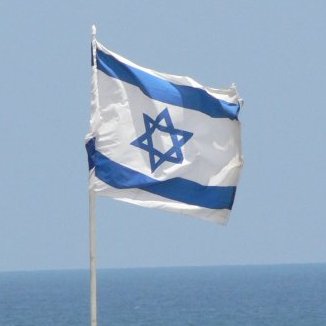 |
| Image courtesy of myjewishlearning.com |
I grew up largely ignorant of Yom Ha'atzma'ut, especially regarding any religious significance the day may or may not have. After my experiences in Israel, and then at Yeshiva University, I came to have a growing appreciation for the 5th of Iyar as not merely a political commemoration, akin to the 4th of July here in America, but as a day with valid religious meaning.
My current shul does not recognize Yom Ha'atma'ut at all. Yom Ha'atzma'ut was celebrated there many decades ago under a different congregational rabbi, who happened to have received semicha from YU's rabbinical school, RIETS and was a very ardent Zionist. Hence, my new found connection to the holiday feels a bit stifled without the proud and public religious atmosphere that I experienced in Israel and at YU.
While the current rabbi was speaking about the restrictions during Sefiriah, emphasizing the tragic deaths of Rabbi Akiva's students he specifically mentioned the prohibition of listening to live music, as well as recorded music - and even (per his opinion) A Capella as well. I began to recall the YU chagiga and the afternoon concert that is held every year on this day - and my mind ruminated on the idea of "What would Rabbi Akiva do?"
It is an interesting question that had not occurred to me before, but I think that it bears some significance regarding how we can, or should approach the celebration of Yom Ha'atzma'ut as a joyous religious holiday, even in the midst of mourning customs of Sefirah.
Rabbi Akiva was an optimist and a fervent lover of the Land of Israel.
We know he was very involved in the Bar Kochba revolt, initially believing in the messianic fervor that gripped many, giving hope to the possibility of a final redemption and the rebuilding of the land and the Beis Hamikdash. Some even suggest that the deaths of his students were not due to a plague per se, but because they were actively involved in the rebellion as soldiers serving under Bar Kochba and hence his defeat lead to many deaths, including theirs.
We also know the fairly famous story from Makkot 24b wherein Rabbi Akiva was walking with Rabban Gamliel, Rabbi Elazar ben Azaryah, and Rabbi Yehoshua near Mount Scopus and saw the devastation of Har Habayit, followed by a fox running out from the former location of the Kodesh Kodashim
While his colleagues cried at the latter sight, Rabbi Akiva laughed. They only saw the destruction and were overwhelmed with sadness. Rabbi Akiva saw the fulfillment of a prophecy regarding the plowing over of Har Habayit, which gave him hope that yet more prophecy would be fulfilled, namely, the rebuilding and repopulation of Yerushalayim.
If Rabbi Akiva, who could look at such ruin, and see amid the ashes a glimmer of the promised future yet to come, then if he were alive today and saw the founding of the modern State of Israel, and what it has achieved in its mere 65 years of existence, he would not only smile and laugh, but I imagine sing and dance as well.
In spite of the State of Israel's imperfections - and they do exist - so much good, so much Torah learned, so much mitzvah observance and so many people reaffirming their Jewish identities the world over has happened because we now have our homeland in Jewish hands once again.
While it is absolutely worthwhile to learn the lessons from the tragedy of Rabbi Akiva's students, it is also absolutely worthwhile to step back and celebrate the lessons we have learned - and continue to learn - from having the State of Israel in our lives.
May Rabbi Akiva's words of comfort become true soon, and we will have the full realization of the rebuilding of Israel and the Beis Hamikdash!
 (Picture courtesy of Wikimedia)
(Picture courtesy of Wikimedia)